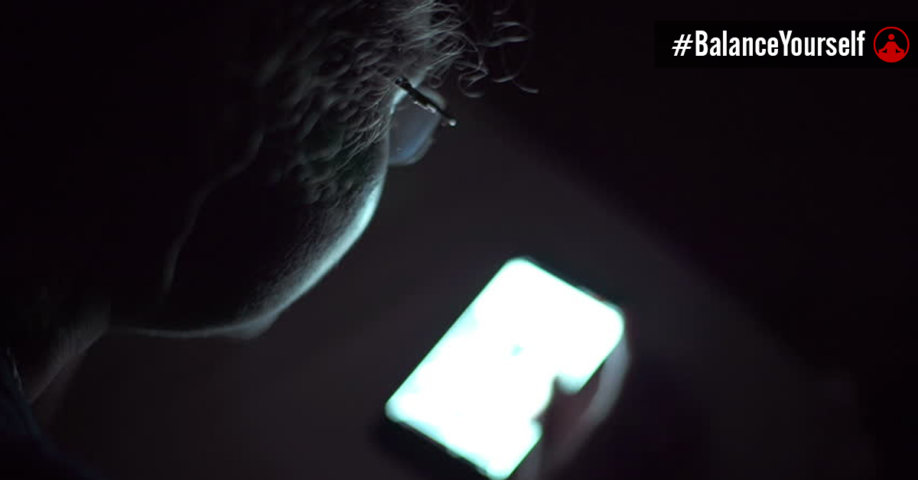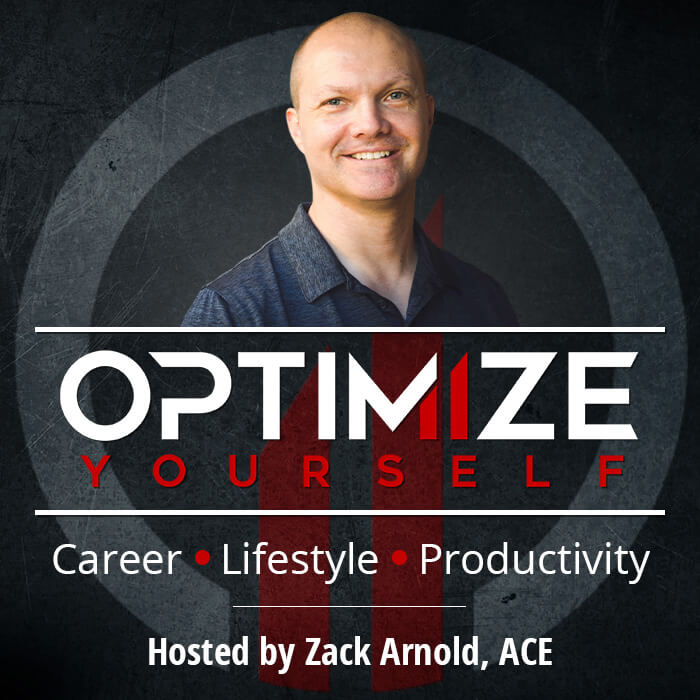

Zack Arnold
FEAR: How to Protect Your Mental Health From the Infection Far Worse Than COVID-19
Seriously…how the hell did we get here so quickly?
Not even a week ago we were posting memes making fun of silly handshakes from the future and replacing our toilet paper with the ‘3 seashells.’
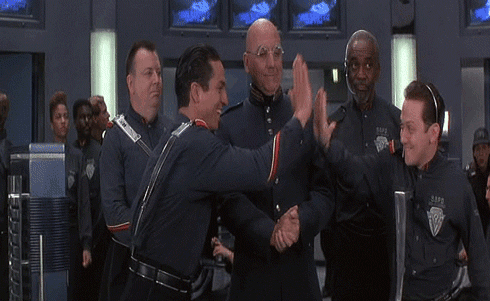
And now we have no NBA. MLB. NHL. NCAA March Madness. SxSW. NAB. Disneyland. Universal Studios. School of any kind. Or…well…anything.
And don’t even get me started on my first thoughts upon hearing that Sheriff Woody was infected with the coronavirus (this FB post sums it up beautifully).

Aside from the impact of cancelling essentially every public gathering and sporting event worldwide, Hollywood and the entertainment industry are getting obliterated. Over 90 Hollywood productions have shut down as of publishing this article (no doubt this number will become obsolete within hours…my apologies for that in advance).
This doesn’t just mean your favorite binge-worthy shows are delayed…
This means that tens-of-thousands of people are instantly out of work with no corporations willing to cover their salaries because they are independent contractors or weekly employees (as opposed to staff employees with benefits). Even worse, the lack of work over a long enough period of time could potentially lead to the loss of health benefits at the worst possible time.
To put it simply, we’re in uncharted waters. And everyone is terrified of the unknown.
What’s Different About COVID-19?
While the global hysteria response to COVID-19 is absolutely unprecedented, what I find more interesting is the circumstances that got us here are far from unprecedented.
You’ve no doubt seen comparisons between the coronavirus and the Spanish flu or other similar strains of this virus like SARS or H1N1 (aka ‘the Swine Flu’). So why didn’t these global pandemics cause mass closures of all public gatherings, educational institutions, widespread hysteria, mass travel restrictions, xenophobia, foot handshakes, toilet paper shortages (don’t get me started) and our stock market to collapse in a mere matter of days?
Comparing present circumstances to the Spanish flu is practically impossible given that 100 years ago we didn’t yet have air travel, cell phones, or the Internet, not to mention the radical advances in medicine over the past century. In 1918 horses were still a common source of transportation!
Comparing present circumstances to The Swine Flu, however, is where things get really interesting. In 2009 we had international air travel. We had cable, satellite, and broadcast television. We had CNN, MSNBC and Fox News. We had the internet. And we even had cell phones.
If you were to ask almost anyone about their memories of The Swine Flu epidemic from just 11 years ago, they’d probably respond with, “Yeah, I think I remember that?”
Did you know The Swine Flu was also declared a global pandemic? And that the stock market actually rose 10% within 1 month of it being declared a public health emergency?1
Did you know an estimated 22 million people were infected with H1N1 in 2009, and this led to anywhere between 151,700 and 575,400 deaths (as of 2012)?2
I’ll bet you didn’t know any of this.
So how did we get here so quickly then?
In 2009 our screens and devices had yet to become extensions of our brains.
Yes I fear the coronavirus. Not for me personally or for my immediate family – we’re all healthy and the mathematical probabilities overwhelmingly suggest if we’re infected we’ll feel like crap for a few days and then move on with our lives. But I do fear for those most susceptible to the virus (including many members of my extended family, including my parents) which is why I’m happy to practice “social distancing” to prevent the spread of infection to those whose’ lives depend on our discretion.
There’s an infection I fear far worse than the coronavirus:
The infection of fear.
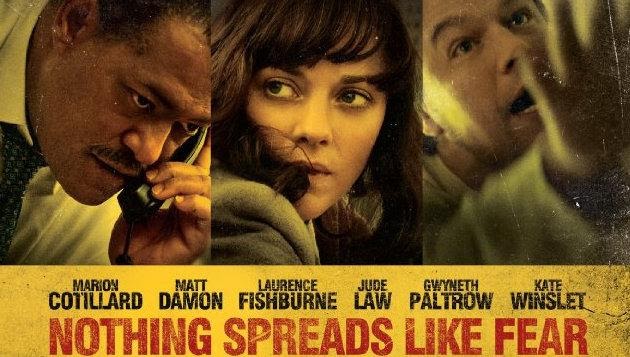
When last we dealt with a global pandemic as serious as COVID-19, we weren’t yet addicted to our dumbphones. Yes we had Facebook and Twitter in 2009, but they were still in their infancy and far from the mass communication juggernauts they have become today.
Facebook only had 150 million users at the time3 (as opposed to 2.37 billion today4) and we used it to share pictures of our kids holding hands on playdates (and cyber-stalk our college crushes).
Twitter only had 58 million users5 (as opposed to 337 million today6) and we used it to watch ‘appointment television’ shows like American Idol, House, and 24 as a national community.
“Apps” were cool toys but not indispensable tools that ran our lives.
“Fake news” wasn’t a thing yet.
And in 2009 there were an estimated 172 smartphone sales7 which pales in comparison to the more than 3.5 BILLION people who use smartphones in 20208.
We haven’t reached the point of global mass hysteria and economic collapse because of an incurable virus that no human has immunity from.
We got here because the world we’re reacting to is the one we see devolving before us moment by moment on our screens.
As the tagline from the 2011 film Contagion exhibits:
”Nothing spreads like fear.”
Fear Is the Infection You CAN Control
Listen, I’m just as guilty as everyone else. I’ve spent hours during this crisis absolutely frozen, blindly staring at my phone mindlessly scrolling through Twitter, Facebook, and various news sites with my jaw dropped whispering, “What in the holy f*ck is going on right now?”
I’ve seen the pictures of the barren streets in Italy, the empty shelves with no hand soap, paper towels, or dry & canned goods, and the endless charts & statistics about the possible spread of the virus, the predicted infection rates, potential deaths, etc etc etc.
But I’ve also looked out the window to see my neighbors walking their dogs.
I’ve been to the grocery store to see there’s still plenty of food for everyone (even if it means impatiently waiting in lines wrapped around multiple aisles).
I’ve been to the ATM and easily been able to withdraw the maximum daily amount without getting alert messages that all the money in the world is gone.
For the vast majority of us in the 1st world, we still have water to drink, electricity to power our lights and devices, gas to heat our homes and cook our meals, food to eat, and air to breath.
If you have access to the internet and you can read this article right now (and still receive Amazon Prime deliveries), things could be a lot worse.
I’m not saying this is cause to not take precautions or to ignore this pandemic and those who are in serious danger (specifically the homeless, the elderly, or those with diseases that make them more susceptible to serious complications).
At this point we know beyond the shadow of a doubt this virus exists, it’s dangerous, and we all need to do our part to contain the spread so it infects the least amount of people possible no matter how inconvenient.
We also know that although this virus is largely out of our control we can take back some control by making a habit of washing our hands more often, doing the “Corona handshake” with our elbows and feet, staying away from large gatherings (which at this point is easy because there aren’t any left), being more conscious of the surfaces we come in contact with, and touching our faces less (good luck with that).
Beyond this knowledge, how much additional value are you really getting from staying glued to your Facebook, Twitter, or endless news feeds for hours a day? Are things really going to change minute-by-minute such that you need to read every single breaking news story?
Is staying connected to current events serving you and your family?
If we were talking about a wildfire or natural disaster, minute-by-minute Twitter updates could literally save your life. But in this scenario I can think of far better things for your mental health than staring at your phone.
If you find yourself losing control and getting sucked into the black hole of anxiety and paranoia, here are five simple suggestions (and a bonus) to weather this storm and begin taking back control of your mental health during this unprecedented global crisis.
1. Over Prepare
One of the most valuable lessons I’ve learned from 2+ years of training for American Ninja Warrior is how to manage and minimize fear. And the greatest advice I’ve received is from a former Cirque de Soleil trapeze artist. As someone who has swung through the air and defied gravity for two decades, he told me their method for overcoming anxiety and fear is to mentally visualize every possible “worst-case scenario.”
If you fall, what happens? There’s a safety net. If the safety net fails, then what happens? There’s a second safety measure. If the backup safety net also fails, what’s next? There’s a team there to catch you.
After visualizing all scenarios and practicing failing as much as practicing success, the brain recalibrates its response to fear. As someone who was terrified of heights 2 year ago and had a panic attack 15 feet up a bouldering wall, I can now belay 60 feet without breaking a sweat because I’ve practiced falling over and over and over. And this level of over preparation has provided me with an almost absolute certainty that I’m going to be fine.
As human beings we all crave certainty and are terrified of the unknown. Right now we don’t know if this pandemic will last for a week, a few weeks, or six months. While we can’t control what may happen next, we can control our level of preparedness.
No I’m not suggesting that you ruin it for the rest of us by stocking up on six months worth of paper towels, toilet paper, and hand sanitizer (all the idiots have covered that already). But in situations like this you have some control over the anxiety about not being prepared.
Make the trip to the store, brave the longer lines, and buy more food than you think you’ll need for the next couple of weeks (I’ve been buying two weeks of supplies every week to slowly and responsibly stock up). Have plenty of medication on hand. Buy some decks of cards or board games if you’re concerned about how to keep your kids away from screens for the next several weeks. Spend more money than you think you should (if you can).
Give yourself multiple safety nets.
The worst case scenario if you over prepare is spending a few hundred dollars on food or supplies you might eventually throw away.
The worst case scenario if you’re underprepared and things get worse could be unimaginable.
Easy choice.
2. Reprioritize Your Finances
The next thing you can control to alleviate anxiety about the uncertain future is your finances. If we’re being honest, I’m guessing you’re probably more worried about your bank accounts than starvation or infection, no?
First things first: Stop following the stock market. If your investing strategy is focused on timing the short term market, you need a new strategy. But seriously, get off your phone. Instead of leaning into the fear, use your time more productively to plan your financial safety net.
I find that most people have a general budget or a vague idea of how much money they need every month, but hardly anyone has defined what I call their “Sleep Easy” number. This is the exact amount to the dollar you require in your main bank account to cover every single basic expense – fixed or variable – to maintain your current lifestyle on a monthly basis. This is all the basic necessities to have a roof, electricity, heat, food, water, transportation, insurance, security, etc. Once you know this number it’s easier to plan for 3-6 months of emergency savings, it’s easier to plan for the next hiatus, and it’s easier to understand how much of your excessive lifestyle you must trim during times of crisis.
If you don’t have an emergency fund to provide a minimum 3 month safety net for times like this, right now is a pretty good time to start building one.
Once you have a clearer picture of your “Sleep Easy” number it’s time to eliminate some of the non-essential expenses that instantly revealed themselves as trivial once the word “global pandemic” hit your Facebook feed.
Especially if you’ve just lost your job for the foreseeable future, I bet multiple items on your monthly budget can go pretty quickly under the circumstances, no?
Use the next several weeks at home to start building your long-term safety nets so this fear never wins again. My favorite resource for financial planning is Ramit Sethi’s ‘I Will Teach You To Be Rich’.
3. Disconnect From Every Anxiety-Inducing App & Website (or At Least Start Sharing Responsibly)
With supplies on hand and a better picture of what it’s going to take to survive this crisis financially, the next step is to disconnect from The Matrix. Immediately.
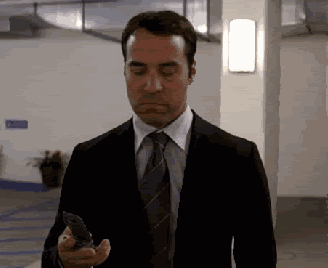
If you’re in agreement you need to disconnect and your plan is to “just stop using your phone,” good luck with that. The dopamine hits you’ve received from the slot machine that is social media and breaking news are going to make this habit very hard to break, not to mention the massive overdose of information, fear, and hysteria that’s been injected straight into your amygdala during this crisis.
My top recommendation is to install the Freedom App to block all offending apps across all of your devices. It’s highly customizable to block any site or app for whatever time period works best for you (I’ve blocked everything for 24 hrs a day at this point. If things change for the worse I’m sure I’ll hear about it from my wife or other family members).
If you’re not comfortable with a 24/7 cold turkey digital detox, at least prioritize specific times where you can disconnect and be more present with your friends or family (and help them disconnect as well).
Here’s an additional article I wrote a few years ago aptly titled 9 Apps to Help You Steal Back Your Focus (And Avoid Reading About the Pending Apocalypse).
And if you want to go even deeper down the rabbit hole, learn how to become a ‘Digital Minimalist’ from bestselling author and social media expert (and genius) Cal Newport.
Once you’ve disconnected yourself as it suits you, start changing what you do share with an increased awareness of your responsibility to not induce unnecessary panic. Stop staring at the pictures of empty shelves on Facebook thinking you and your family are going to starve. More importantly: Stop posting your own pictures of empty shelves. YOU ARE NOT HELPING.
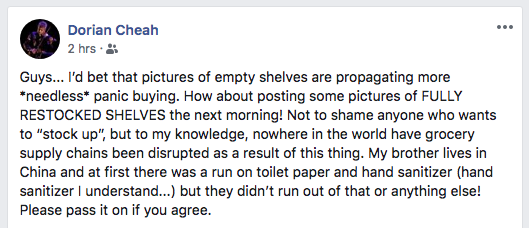
Instead start sharing pictures of the food that IS available right now. Share pictures or stories of the activities you and your family are doing at home to reconnect. And stop posting any fear-inducing stories or charts that aren’t meant to educate and inform.

Practice social distancing in public, practice social connection online.
4. Prioritize Sleep & Exercise (Especially Cardio)
I know how tempting it is to cuddle up with Netflix (and a pint of mint chocolate chip) and binge every single show you’ve had in your queue for the last 6 months. But the game has changed.
We’re literally talking about life and death. Your well-being and safety are the priority.
The last thing you want to do is weaken your immune system by being sedentary for the next few weeks or spending late nights in front of the television sacrificing hours of sleep in lieu of watching “just one more episode.”
Moreover, the more you embrace the fear and anxiety of current events, and the more you couple that with lack of exercise, the more prone you will be to depression which is a vicious cycle that leads beyond anxiety into outright paranoia if you’re not careful (I’ve been there firsthand…it’s not pretty).
Now is the time to begin the habit of moving during the day, taking walks around the block, going hiking, getting on your bike, or whatever inspires you. Remember all those times when you were locked inside a dark windowless room thinking, “I can’t wait until the next hiatus so I can finally get healthy.” Now is the perfect time.
It’s not like the air is infected with Ebola – you can still go outside!
More importantly specifically because COVID-19 is a pulmonary infection and primarily affects the lungs, when you do cardio-specific exercises (e.g. jogging, biking, rowing, plyometrics, HIIT training, etc) it forces oxygenated blood into the lower lungs to lessen your vulnerability and build healthier lungs in general.
Given that you might feel less than comfortable with going to the gym right now, my work-at-home routines of choice are Tony Horton’s Next Level program on Amazon Prime, or you can access a multitude of awesome work-at-home routines via Beachbody On Demand (and my obvious recommendation is any program from P90X creator Tony Horton).
Yesterday was the best time to start an exercise routine. But now a lot more is at stake. So the next best time is now.
BONUS: No doubt your diet and eating habits have completely gone to sh*t like mine. The least you can do is give your immune system a boost by getting your daily serving of greens in one glass.
5. Build Your Professional Network From Home
So far I’ve intentionally avoided the ‘elephant in the room’ to focus on more critical necessities such as food, water, money, and your sanity. But assuming we’ve got all of the following relatively under control, the obvious next challenge is: What am I supposed to do about work?!
As a lifelong introvert I can say I’ve been practicing ‘social distancing’ as a professional artform my entire adult life. Because of that I’ve built my entire professional network from home in my pajamas. I have no intention of allowing the coronavirus to put a crimp in my networking plans.
I realize for many of you the loss of in-person panels, workshops, networking events, festivals, and meetups severely inhibits your ability to connect with people and find the next gig. But the good news is everyone else is in the exact same position as you: They’re stuck at home with the internet and nothing but time.
There is no better opportunity than right now to begin researching and connecting with people who can potentially open the right doors to the next stage in your career. Worried people are “too busy” to do a quick phone chat? NOT ANYMORE!
There is no better time to get yourself into other people’s inboxes and build your network.
Yes, if you approach your outreach with a transactional approach and the intent of just finding work, you’re wasting your time (and I’d argue this approach never works, global pandemic or otherwise).
But if you approach networking as a way to build genuine relationships with people in your industry that you admire, you finally have the time to focus on doing it right without the pressure of needing work immediately (because frankly there might not be any for a while).
If you’re unsure where to get started with email outreach, here’s my Insider’s Guide to Writing Great Outreach Emails.
BONUS: Set Yourself Up to Work Remotely
If you’ve just been laid off because your project has gone on indefinite hiatus, you can choose to accept your circumstances, or you can use this time to set yourself up to provide your services remotely (if you can’t do so already).
Using my email outreach guide you now have the power to extend your network beyond your current circle of collaborators. Now you can focus on investing for what will soon become our inevitable future of working remotely on a global scale. Get educated, download some trial software for remote collaboration tools like Zoom or Frame.io, research what it would cost to invest in additional media storage or conversely working from the cloud, and build the workstation that will allow you to become a globally available talent as opposed to just local.
(NOTE: Keep an eye out Monday for an in-depth article I’m releasing that details tons of options for building a remote editorial workflow in a hurry).
You Are More In Control Than You Realize
We’re all in uncharted waters dealing with unprecedented circumstances on a global scale. I have no more certainty than you about how everything will work out. While there are few things within our control right now (and it feels like nothing is), there are things we can control to avoid the pandemic of fear and protect our mental health and well-being:
- Over prepare for the worst (and hope for the best)
- Clarify your financial needs (and what you can sacrifice)
- Disconnect from the endless 24/7 cycle of fear and paranoia
- Prioritize sleep, exercise, and your sanity
- Focus on expanding your network (from the comfort of home)
- Invest in the global transition to remote work
And finally, be grateful for what you do have access to in our modern world. It wasn’t until I saw empty store shelves plastered across social media that the thought of not having access to food & water became a potential reality. I can’t tell you how amazing it felt to bag my own groceries thinking “I’m so lucky to have access to healthy food, fresh produce, and an abundance of staple foods ten minutes from my house.”
Things could be much worse.
PS. It’s okay to curl up on the couch with the ones you love, your Netflix queue, a handful of spoons, and a shared pint of mint chocolate chip ice cream while you say F*ck it all!
Be well.

